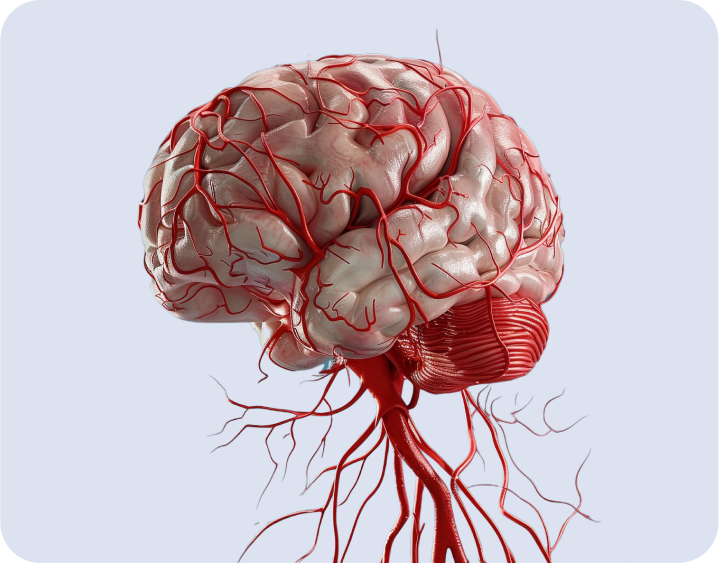Cardiology
Registered on ClinicalTrials
The effect of Mexidol on improving quality of life parameters and functional state of the kidneys as part of complex therapy for cognitive impairment in comorbid patients with microalbuminuria against the background of arterial hypertension and type 2 diabetes mellitus
V.V. TOLKACHEVA, L.V. KARAPETYAN, L.G. EZHOVA, N.I. KHUTSISHVILI, N.I. KONTAREVA,
S.A. GALOCHKIN, E.R. KAZAKHMEDOV, J.D. KOBALAVA
FGAOU in Russian University of Friendship of Peoples named after Patrice Lumumba, Moscow, Russia
The influence of Mexidol in the composition of complex therapy on the perception of life by a patient with heart failure
Authors:
Tolkacheva V.V., Karapetyan L.V., Khutsishvili N.I. , Galochkin S.A., Kazamedov E.R., Kobalava Zh.D.
The influence of Mexidol on the improvement of cognitive status and quality parameters as part of the complex therapy of patients with chronic heart failure of the II - III functional class
Author:
Tolkacheva V.V., Karapetyan L.V., Khutsishvili N.I., Galochkin S.A., Kazakhmedov E.R., Kobalava Zh.D.
FGAOU in Russian University of Friendship of Peoples named after Patrice Lumumba, Moscow, Russia
Cognitive disorders in patients with a cardiological profile: diagnosis and prevention
Author:
E.K. Shavarova 1.2 , A.A. Shavarov 1 , R.E. Akhmetov 3 , railway Cobalava 1.2
1 FGAOU at the Russian University of Friendship of Peoples, Moscow, Russia;
2 GBUZ "GKB named after V.V. Vinogradova DZM ”, Moscow, Russia;
3 LLC Scientific and Production Company "Pharmasoft", Moscow, Russia
The relationship of cardiovascular diseases and cerebrovascular complications
Authors:
Ostroumova T.M., Kochetkov A.I.
Place of publication:
11,2022
Mexidol effects in patients with chemical and heart failure II - III functional class
Authors:
A.V. Schulkin 2 , E.R. Kazamedov 1 , S.A. Galochkin 1 , V.V. Tolkacheva 1 , railway Cobalava 1
1 FGAOU in Russian University of Friendship of Peoples, Moscow;
2 FSBEI in the Ryazan State Medical University named after Acad. I.P. Pavlova "of the Ministry of Health of Russia, Ryazan
Cognitive disorders for heart failure: the role of microcirculation disorders
Authors:
Chimagomedova A.Sh., Gioeva Z.R., Akhilgova Z.M., Kurkina M.V., Avtandilov A.G.
FSBEI DPO Russian Medical Academy of Continuing Professional Education, Moscow, Russia
Place of publication:
Journal of neurology and psychiatry named after S.S. Korsakova
2020, vol. 120, No. 10, issue. 2
Arterial hypertension, cognitive disorders and dementia: the view of the cardiologist
Authors:
O.D. Ostroumova 1.2 , M.S. Chernyaeva 3
1 FSBEI IN "Moscow State Medical and Dentological University named after A.I. Evdokimov »Ministry of Health of Russia, Moscow, Russia;
2 FGAOU VO "First Moscow State Medical University named after THEM. Sechenov ”(Sechenov University) of the Ministry of Health of Russia, Moscow, Russia;
3 FSBI DPO Central State Medical Academy Affairs of the President of the Russian Federation, Moscow, Russia
The role of antioxidants in the prevention and treatment of patients with a high risk of cardiovascular complications
Authors:
Shchepanevich L.A. 1*, Tanashian M.M. 2*, Nikolaev Yu.A. 1*, Polyakov V.Ya. 1*, Pervuninskaya M.A. 1*, Antonova K.V. 2*
1* FGBNU "Research Institute of Experimental and Clinical Medicine", Novosibirsk, Russia;
2* FGBNU "Scientific Center of Neurology", Moscow, Russia
Place of publication:
Cardiology and cardiovascular surgery, 4, 2018
The use of Mexidol® in cardiology is an additional and real myocardial protection path
Author:
N.Yu. Borovkova
FSBEI in the Nizhny Novgorod State Medical Academy of the Ministry of Health of the Russian Federation, Nizhny Novgorod
Place of publication:
cardio, issue No. 11 (25), 2017
Anxy with a high level of anxiety
Authors:
S. D. Kurochkina*, Candidate of Medical Sciences, E. V. Semenova **, Yu. V. Tereshchenko **, candidate of medical sciences, A. A. Semenkin **, Doctor of Medical Sciences, Professor, G. I. Nechaev1, Doctor of Medical Sciences, Professor
* Buzoo KKD, Omsk
** FSBOU in the OMGMU of the Ministry of Health of the Russian Federation, Omsk
Place of publication:
The attending physician, March 2017, No. 3,
Cardiovascular comorbidity: Focus for the correction of tissue ischemia and energy deficiency
Authors:
D.M.N., Professor M.E. Statsenko, MD, Professor S.V. Turkina
Department of Internal Diseases of the Pediatric and Dental Faculty of FSBEI in Volgograd State Medical University of the Ministry of Health of Russia, Volgograd, Russia
Place of publication:
Cardiology and cardiovascular surgery, 6, 2016
Experience in the use of metabolic drugs in interventional cardiology
Authors:
A.A. Spassky, A.A. Mikhailov
Place of publication:
Cardionei, 2016
Mexidol in the complex therapy of stable angina pectoris
Authors:
G.I. Nechaeva 1 , S.D. Kurochkina 2 , A.D. Trotsenko 3 , E.Yu. Bulakhova 2
1 Omsk State Medical Academy
2 Buzoo City Clinical Hospital No. 4
3 Buzoo Medical Center of the Ministry of Health of the Omsk Region
THE INFORMATION IS INTENDED FOR HEALTHCARE AND PHARMACEUTICAL PROFESSIONALS. THIS INFORMATION IS NOT INTENDED AS A SUBSTITUTE FOR MEDICAL ADVICE.
Source of photos and images Shutterstock.com















